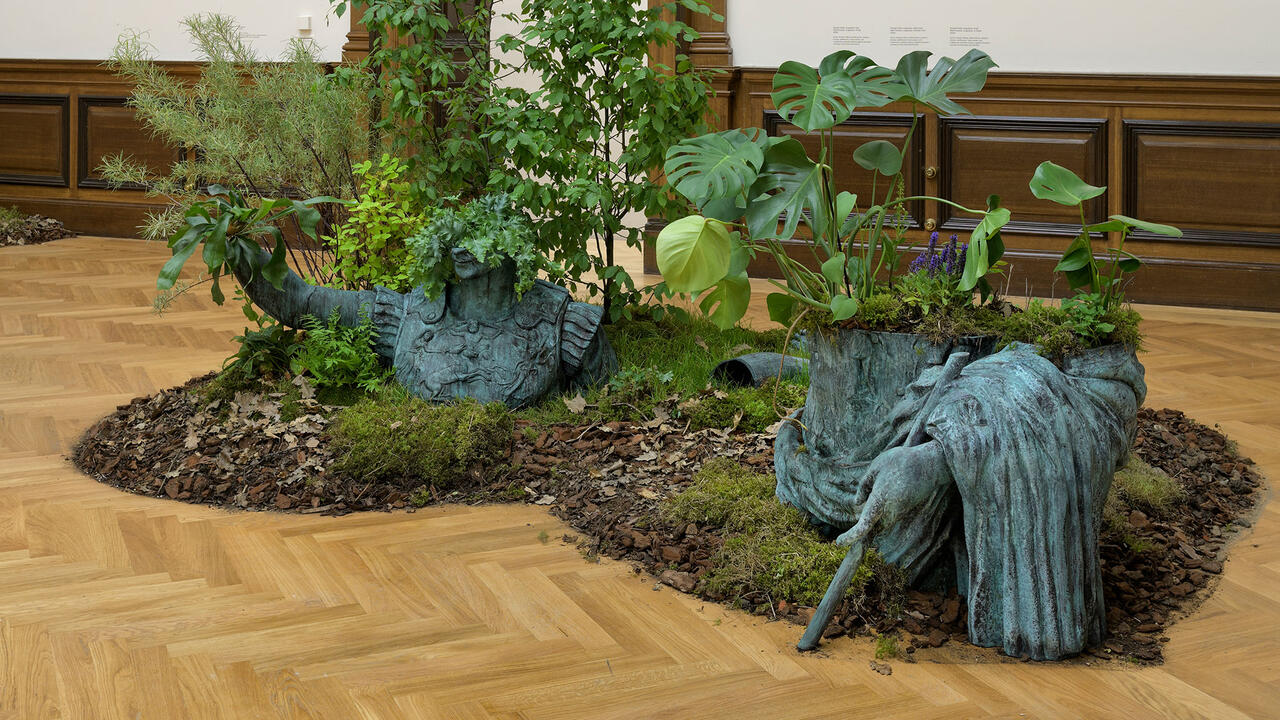With/Without: Spatial Products, Practices and Politics in the Middle East
Shumon Basar, Antonia Carver and Markus Miessen (eds.), (Bidoun and Moutamarat, Dubai, 2007)
Shumon Basar, Antonia Carver and Markus Miessen (eds.), (Bidoun and Moutamarat, Dubai, 2007)

An attempt to be timely with a commentary on Dubai is rife with the kind of paradoxes more usually found in astrophysics: the sheer acceleration of the city’s development would appear to be incompatible with perceiving it directly at any one moment. As With/Without contributor Brian Ackley admits, his article from 2005 in the book ‘is already largely out of date’, and ‘the analysis and criticism ... may sound almost quaint’. Though With/Without is certainly not only about Dubai (we also visit Kabul, Istanbul, Cairo, Beirut and Tehran), it is the primary topic of its pages. Even if it is perhaps disadvantaged by the inherently slow, broadly linear, one-on-one presentation of the book format, editors Shumon Basar, Antonia Carver and Markus Miessen’s laudable contribution moves us at least fractionally nearer to grasping some of the more unprecedented phenomena of speed and multiplicity that the city is currently sublimating.
Engaging in their own right, contributions focusing on other places are often fraught by their relation to great sweeps of history: a study of the new Jamarat Bridge in Makkah, Saudi Arabia (made necessary by the crushing crowds of the Hajj pilgrimage), an interview with the director of the looted Iraqi National Library and Archive or a glimpse of the future of Martyrs’ Square in Beirut. Yet in With/Without they serve to enshrine the idiosyncrasies of Dubai, where urban history can be traced (or made up) through little more than a decade. The term ‘spatial’ in the book’s subtitle may seem an imprecise adjective. However, what is suggested throughout the faux-glossary format – with sections such as ‘Park’, ‘Museum’, ‘Mall’, ‘Village’ and ‘Suburb’ – is just this indistinctness, where the terms ‘architecture’, ‘public space’ or ‘city planning’ have little traction in the usual sense. Instead, ‘we must seek a plurality of positions as agile as they are inventive’, the editors say. In Dubai, a city for which it seems that post-modernity is already antiquity (to bastardize a leitmotif of documenta 12) and where the lessons of Learning from Las Vegas (Robert Venturi, Steven Izenour, Denise Scott Brown, 1972) have long been learnt, they implore ‘we must investigate the world “without” design(ers) as much as the world “with” design(ers)’.
Contributing to a sizeable chunk of the articles, the editors have had to be careful not to engineer a stylistic ‘undesigned’ rhetorical black hole of their own devising, so plural as to be meaningless. Despite advising that ‘premature hyperbole should be avoided by critics’, Basar nimbly takes in the memorably ‘utterly unmemorable’, ‘brilliant idiocy’ of the ‘hypermediocre’ skyscrapers of Dubai’s Sheikh Zayed Road, while Miessen describes the unbridled reinvention of the shopping mall – each with assuredly precarious, nonchalant yet gushing prose perhaps recalling Jean Baudrillard’s America (1986) or Arthur and Marilouise Kroker’s Panic Encyclopaedia (1989).
The more plausible archetype is the textual work of Rem Koolhaas – the subject of a sympathetic and incisive interview by Miessen about his Middle East projects. Moreover, what squarely sets apart the coolly cynical stance Baudrillard takes in America from the approach to Dubai and the Middle East in With/Without is a fundamental difference in judgement. Shadowing Koolhaas’ thinking precisely are repeated declarations that negative judgements of Dubai’s theme-scaped mega-developments and Free Trade Zones are ‘neo-left moralizing’ taboos of neo-colonialist thinking that ‘hinder any constructive move forwards’. Even if we accept the jettisoning of spatial authenticity, what this can mean for the inhabitants (human and non-human) of a region where, as stated by Basar, ‘both desert and sea are surfaces waiting for things to happen on them’, remains to be seen.

























